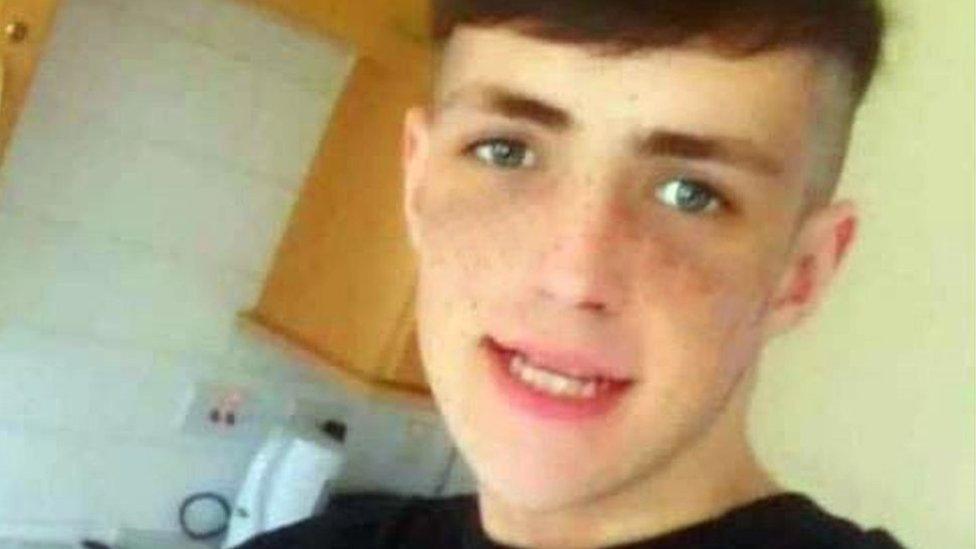Drugs minister promises action on 'national shame'
- Published
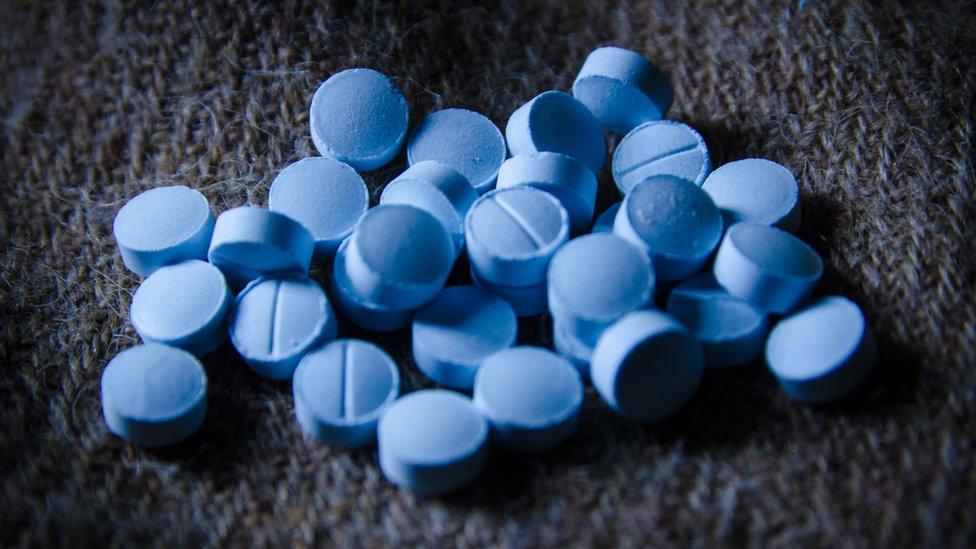
Nearly three quarters of drugs deaths in Scotland involve the use of benzodiazepines, which are often taken alongside other drugs
Scotland's drugs minister has promised to make tackling drugs deaths a priority", describing the latest figures as a "national shame."
However, Angela Constance would not commit to supporting a Right to Recovery Bill, external being proposed by the Scottish Conservatives.
The drugs policy minister made a statement to MSPs after drug-related deaths in Scotland reached a new high.
But Ms Constance said she needed to see more detail on the Tory proposals.
Annual figures released last week revealed there were 1,339 drug-related deaths in Scotland, a record for the seventh year in a row.
Scotland continues to have by far the highest drug death rate recorded by any country in Europe, and more than three-and-a-half times that of England and Wales.
Opening her statement, Ms Constance said: "The loss of life in Scotland from drug-related deaths is as heartbreaking as it is unacceptable.
"It's our national shame, and I offer my condolences to all those who have lost a loved one as I continue with a commitment to do everything possible in our new national mission to turn the tide on rising drug-related deaths."
She continued: "We have had the humility to accept what has been wrong and, going forward, we will have the courage to do what is right."

2020 annual drugs figures
1,339 drug deaths - a rate almost three times higher than a decade ago
Men were 2.7 times as likely to have a drug-related death than women
Almost two thirds of deaths were people aged between 35 and 54
Greater Glasgow and Clyde had the highest rate of all health board areas at 30.8 deaths per 100,000 people, followed by Ayrshire and Arran (27.2) and Tayside (25.7).
People in the most deprived parts of the country were 18 times more likely to have a drug-related death as those in the least deprived.
Source: NRS Scotland "Drug related deaths in Scotland, 2020", external

Ms Constance announced the creation of a new residential rehabilitation facility in North Ayrshire to support families affected by drug use.
The government will consider whether alcohol and drugs services should be included in the proposed National Care Service.
She has also commissioned a review on use of illicit benzodiazepines - or "street valium" - which was implicated in 879 deaths last year.
However, opposition parties claimed cuts to drug rehab and addiction programmes by the Scottish government in recent years had worsened the problem.
Scottish Conservative Leader Douglas Ross asked directly if the government would back the Right to Recovery bill, which would give drug users a legal right to their chosen treatment, including rehabilitation services.
He said: "In Scotland, if you live in a poorer area, you are 18 times more likely to die from drugs. Behind all those shocking statistics are lost loved ones and broken families.
"When is the first minister and this government going to wake up? When will she stop abandoning our communities? When is she going to listen to those on the frontline?"


Developed alongside frontline organisations and charities, the Tories say their Right to Recovery Bill would enshrine in law a person's right to their chosen treatment in getting off drugs.
Under the proposals, it would mean that if someone asked for even the most costly treatment - like residential rehab, for example - a local drug partnership would be legally obliged to provide it.
Poor choice of treatment and geographical differences were already identified by many observers as part of the problem, as the drug death tally climbed over the years.
The Scottish government's own Drug Death Task Force found that, in some areas, those seeking help may be offered only one option - such as methadone - despite its effectiveness for the individual. "It wouldn't happen in any other area of practice," said its chairwoman, Prof Catriona Matheson.
This Bill could be seen as an attempt to address this, and includes plans to use drug money seized from criminals to fund treatment services.
The Scottish government recently announced new treatment standards that it says would tackle the inconsistencies across Scotland, make access to treatment quicker and easier, and hold local services to account should they fail. But campaign groups like Favor argue that such measures wouldn't go far enough and have backed the Tories' Bill.
It could yet attract support from other opposition MSPs but the Scottish government remains cautious.

Ms Constance replied: "With respect, I have to say to Mr Ross I have still to see the bill, I am not going to give him a blind or blanket commitment.
"It is my job to look at the detail because scrutiny works both ways and bearing in mind, I have made a number of detailed commitments around investment and delivery to this Parliament and of course have the government's manifesto to implement.
"If Mr Ross wants me to implement his idea and his manifesto commitments, it's imperative that I see the detail of that work."
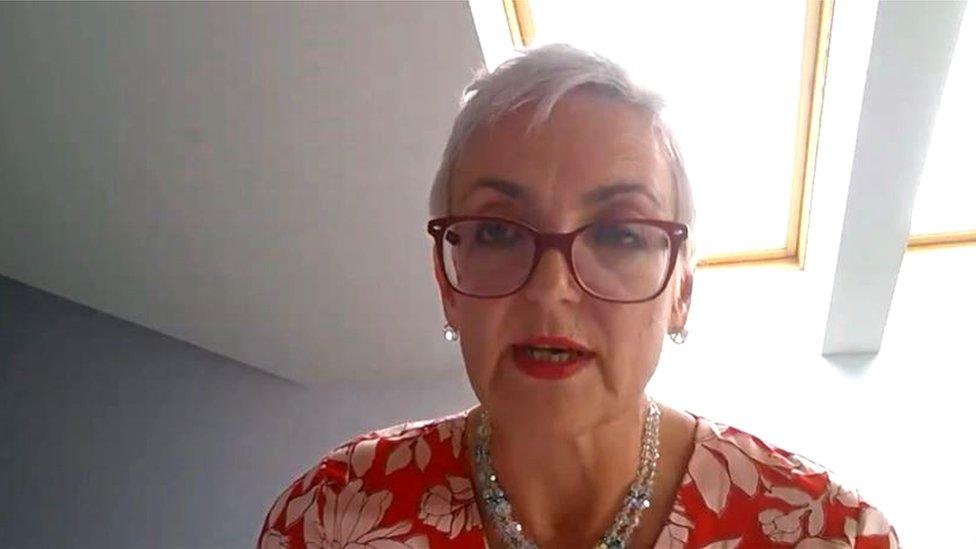
Angela Constance said she needed to see the detail of the Right to Recovery Bill
Scottish Labour leader Anas Sarwar called the crisis "not only Scotland's national shame, but the Scottish National Party's shame too" and said that funding should "not just fill the gaps" of previous cuts.
Scottish Liberal Democrat health spokesman Alex Cole-Hamilton pushed the minister on decriminalising drug use.
He said: "The Scottish government must ensure that people caught in possession for personal use are directed to health treatment, not sent to prison."
- Published30 July 2021
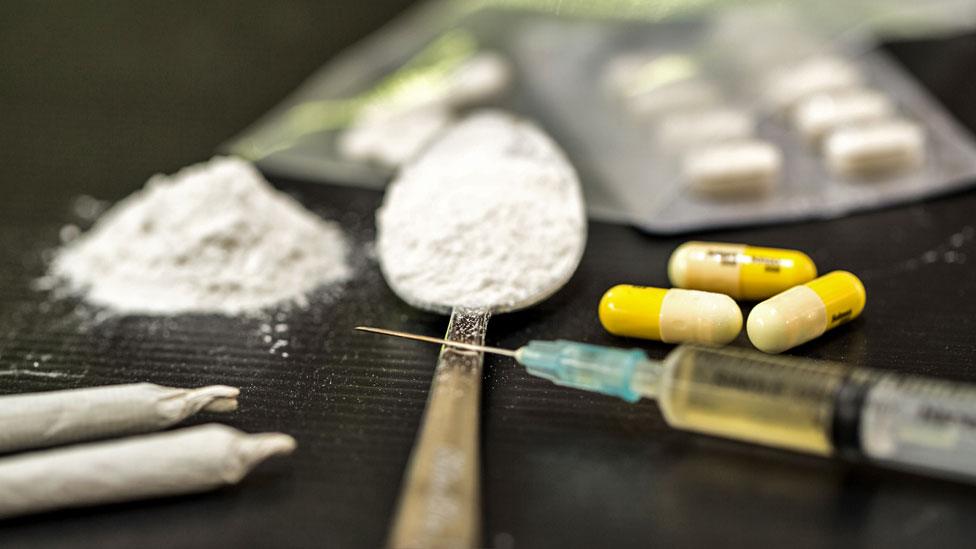
- Published30 July 2021
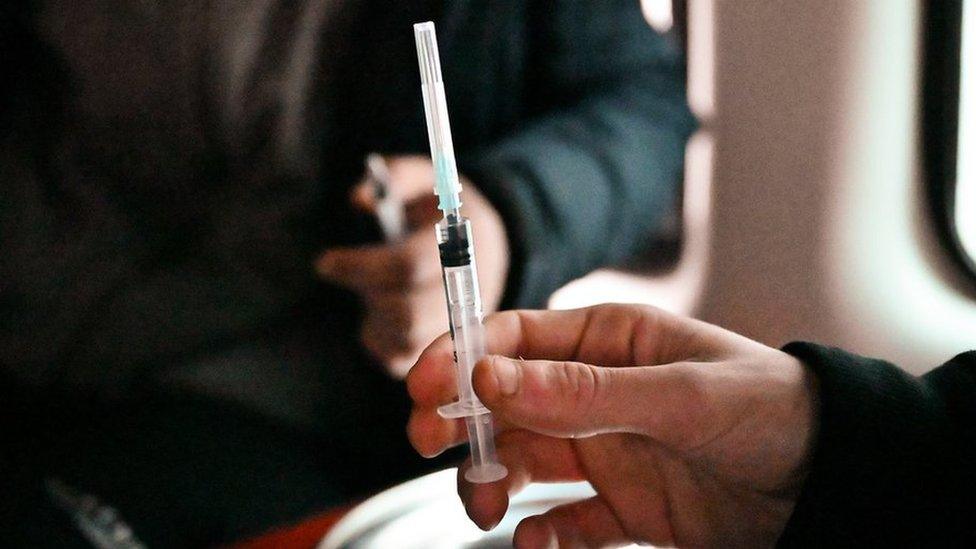
- Published8 April 2021
